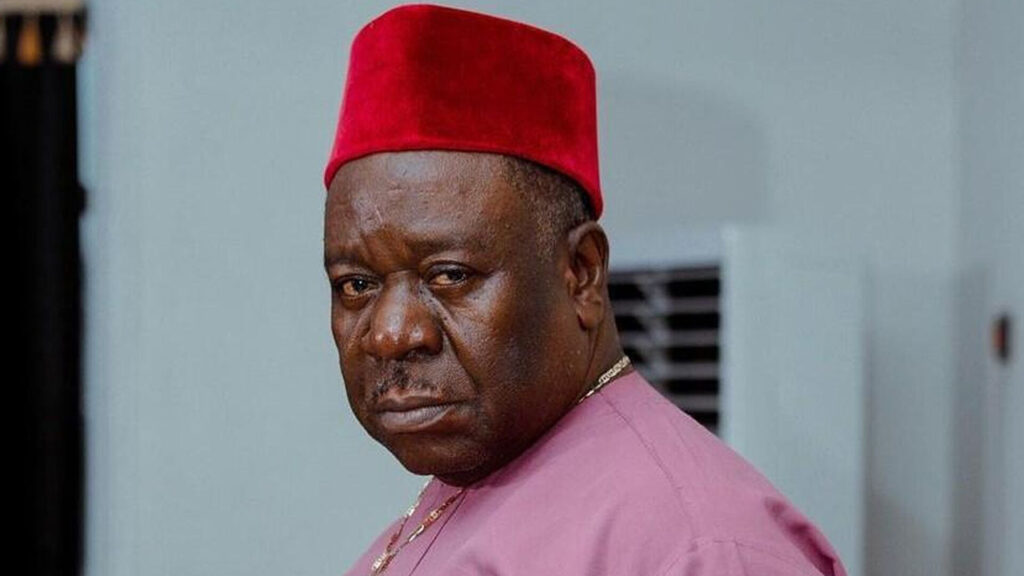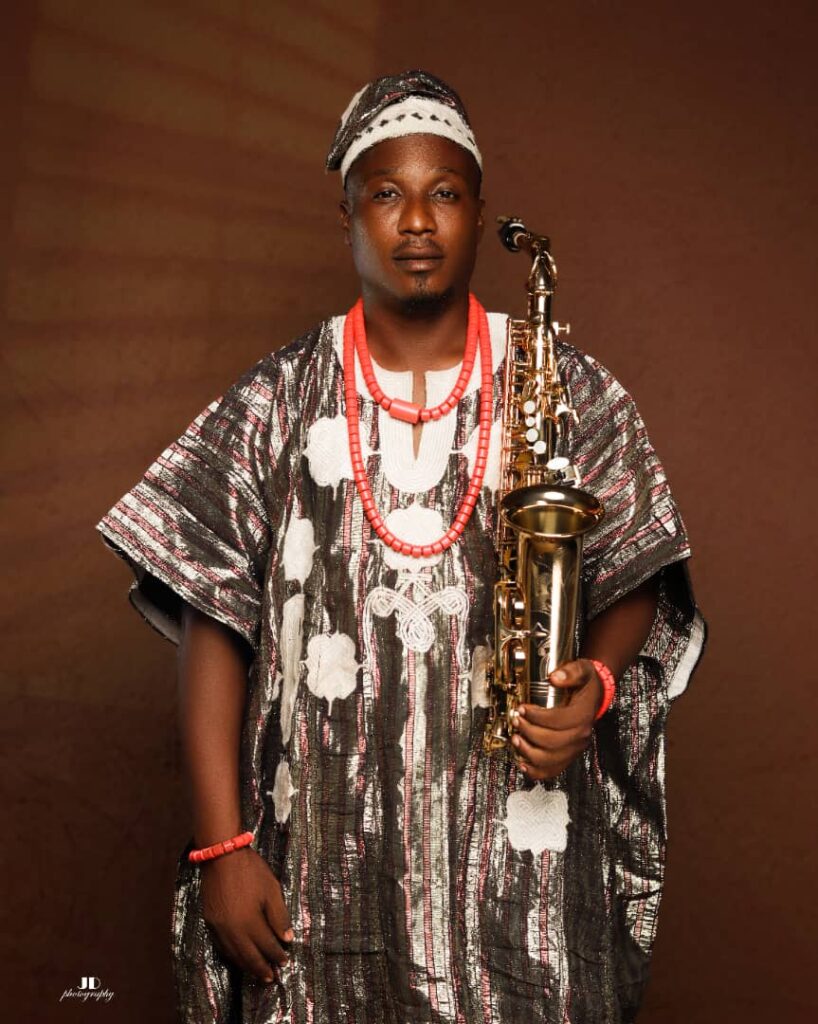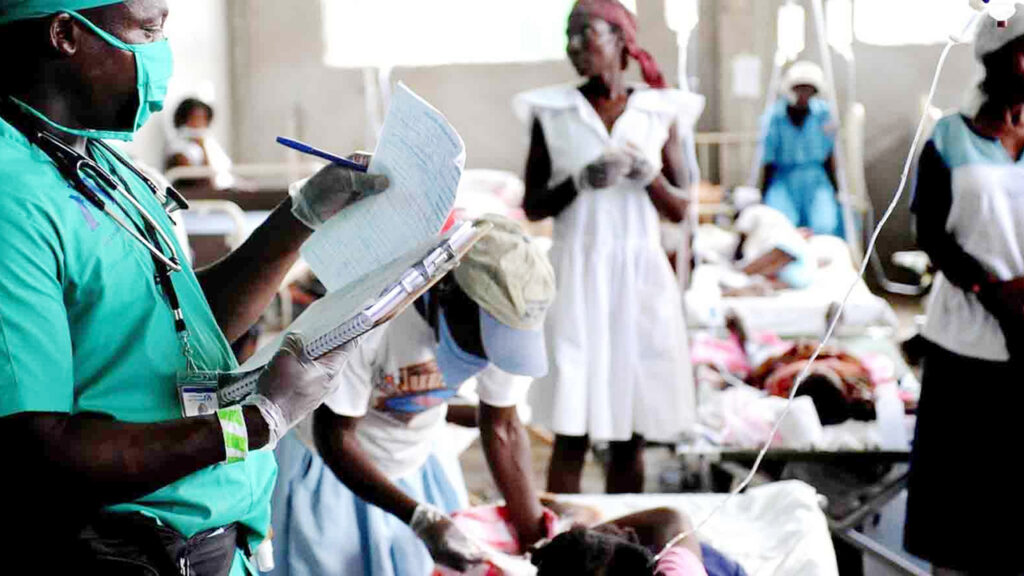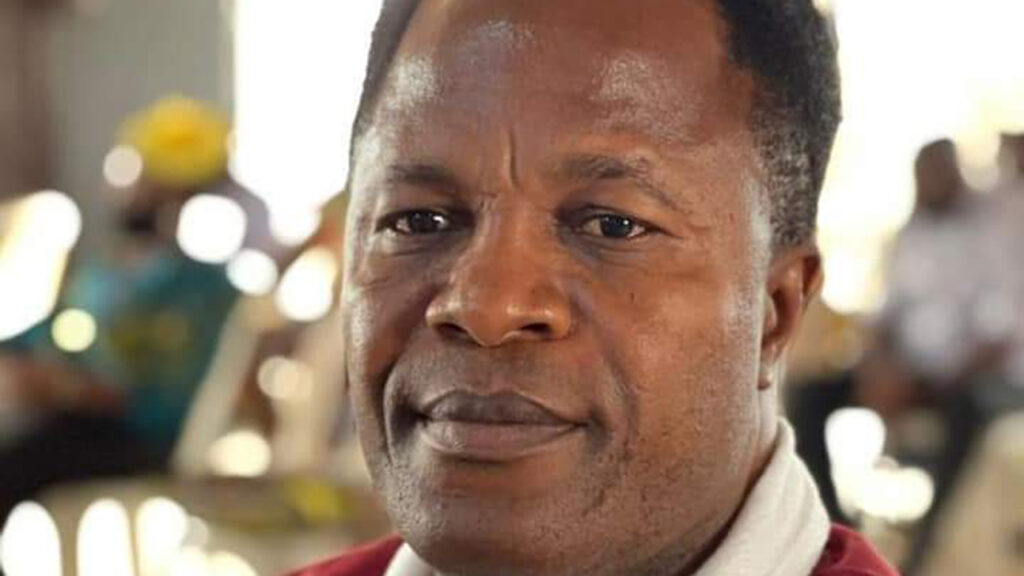
‘Lighting the path of academic excellence’ was the theme of the OOU’s 40th anniversary celebration. What is the secret of your survival especially in the area of funding?
Anywhere in the world, the government alone cannot fund education. The institutions of learning outside the country that we are proud of are not being funded by the government. Institutions will do better through endowment than government funding. Government is doing its own part through subvention. At the same time, we also need to have individuals and corporate organisations that could actually invest and do a cost-benefit analysis of what programmes we have been running and of what benefits they are to the community, state and the nation. We have no fewer than 265, 000 persons who have graduated from this university and some of them are captains of industry today. If 1000 of them can give this university N1, 000 every month, you know it will translate into N100, 000 per month and N1.2 billion each year. If an institution is well managed and it gets a good endowment, the university will do well. I don’t really believe that the government should totally fund a university; there is no way it can be done.
For me, I think the government should create an enabling environment for the university to grow. There are so many ways the university can generate money; it is not just through the increment of tuition fees. Though the government needs to fund it, the managers need to look at the institution as a business venture through which it can generate funds internally.
If you take away government’s funding of the university, what are you doing as the manager of the institution to generate funds needed for the institution?
If the image of the university were good, everybody would want to identify with such institution. Years back, this university was known for cultism and nobody wanted to identify with it. There was a time we were having meetings with the Awujale of Ijebuland, Oba Sikiru Adetona, who told us one of the reasons he found it difficult to come to the institution was because of cultism. We then told him that was in the past. We told him that we now have CCTV cameras to monitor activities in the campus.
So, before 2012, we could hardly get 2, 000 candidates seeking admission. However, when we solved the problem of cultism, the image immediately changed. The following year, over 30, 000 candidates applied. Since that time, it’s been on the increase. Then, the Awujale came and instituted a professorial chair on governance to the tune of N500 million, which was the first endowment that we got.
Awujale has about seven state-of-the-art projects in the university, including the vice chancellor’s residence, and the university chalet. Similarly, Chief Kensington Adebutu built a N200 million Radio Station for us at the Mass Communications Department and another structure in the University Teaching Hospital.
When it comes to funding, of course, the way the students were treated would go a long way in determining if they would return. We are changing the narrative because we are products of this place and we know what happened when we were in school. So, we know what needs to be done to students so that they could come back. We will continue to change the narrative as we move on.
In the past, we used to have chalk and markers but today, if you go to our classrooms, what you will see is amazing. We are using Internet enabled smart boards. We are also changing the environment in which the students are learning because it has a way of affecting their psyches. So, if we make the environment more serene in nature, students will be able to identify with the school. If you go to the teaching hospital at Shagamu, they have standard air conditioners in the classrooms. How will the students graduate and not want to come back?
If you go to the Faculty of Law and you see the seats there, you will be impressed. Recently, one of our alumni gave us a 750-seater hall. Another is building an Information Technology Centre at the Faculty of Law. We have our business school here, which was just completed. In a way, the alumni now see the university as theirs and we are still talking to many more.
We believe that if the alumni do all these, it will reduce the pressure. One of the ways to encourage the students is to ensure that those who are indigent can complete their programmes, which is why we are also into work-study.
Tell us more about the work-study programme and how it solves the problem of increasing number of out-of-school children in the country.
We did a study and we discovered that in the last five years, an average of 2, 000 out of the 30, 000 students were unable to pay their tuition. The management reviewed it and discovered that we could start with a scholarship. So, we started giving the indigent students scholarship if on second class upper (2.1) and above. We discovered that it could not go round and last year reviewed it because we don’t want them to go away; we asked them to apply for leave of absence so that they will not be penalised. They applied to work and the following week they would come back.
Having worked and studied abroad, we decided to introduce the system here in the institution through the work-study scheme to help the students because that was how we studied abroad. We also discovered that it’s not about taking people with 2.1 as there may be other people who are good but cannot make 2.1 because they are taking days off to search for money to train themselves. So, we want to plan for 2, 000 of them at a go. Some areas where we believe that they will be able to work and do well include the library, mowing and bakery. Just like in the UK where students are given 20 hours per week, which is two hours per day, we believe that the same can be applied here. What we want to do is that by the end of the month, students can have money that can take care of their school fees in a session. We will do it in such a way that no student will be given the money because it could be spent. So, we can give you N20, 000 per month and keep the other for your school fees and others. If they do this, it will help them to stay in school and finish their academics.
How do you determine who benefits from this programme?
It’s very simple but if we make it open to everybody, even those that have the money will apply. When they come in, they are supposed to register two weeks into the session. At the end of the two weeks, people that started applying for leave of absence you will know. These are the people that cannot pay. So when you close the portal, you harvest the people that could not register, especially from 200 Level because those in 100 Level will pay. If you didn’t pay, you are not my student. I know the number that I am expecting at two 200 level. At the closure of the portal, you know the number. You harvest them and call them for meeting while giving them options available. That is how we do the job.
There are thoughts that certain courses studied in Nigerian institutions do not satisfy the present day needs of the society. Some countries of the world have modified these courses. What is your institution doing to address this and what does OOU wants to be known for academically?
In the university system, there is 70 per cent of what the National Universities Commission (NUC) will do on its own, but the remaining 30 percent is the local content on what you want your university to be known for. And that can be applied to virtually all the courses. I would say that the courses are interrelated and I can add artificial intelligence in medicine. No matter how we look at these courses, they are still important. A course like Philosophy will always be there because there is philosophy behind every course. Now, in this university, we are trying to modify some of the programmes to meet the needs of society.
We look at it globally and we see there is space for us to identify the speed gaps that our products would definitely have when they get out of the school. Maybe that is why people are of the opinion that we change some of the courses in the humanities. But I have a different view about it. There was a time in this university that we were using the number of students to determine if we were going to run a course or not.
We got to religious studies, and the students that we usually have there were for Islamic Religious Studies and they weren’t usually up to 10 yet we have professors there. So, the question we asked ourselves then was: if we cancel this, would the motto of the university not have been defeated? This is because we pride ourselves as one of the Omoluabi because our colour is blue. So, if we are going to produce Omoluabi, it has to do with this and religion is part of it. That’s why Muslims go to mosques and Christians go to church. If we train these people, they are the ones that will still go and man those churches and mosques and the society will be better for it. What I am saying is that, there is no course that is useless. It depends on the application of it and the philosophy behind those programmes.
Again, I’m happy you said medicine is one of the best products we have in this OOU. I’m also one of them because I studied medicine. But then, when you look at the cost benefit analysis, we would have cancelled medicine a long time ago because medicine produced only 60 students at a time and I had 15 departments to produce the 60 students with not less than six lecturers in each department, including professors. Whereas in the Faculty of Sciences, I don’t have up to six departments and each would give me nothing less than 120 students and I don’t need more than six or seven lecturers to produce that.
In a way, it depends on what the society is looking at. That’s the way we will continue to look at our universities. For instance, in Sociology, people want them to start doing criminology. But what is Criminology that is not in Sociology? Sociology is about human relations and its behaviours. If we behave well, there is nothing like criminology because criminology wants to target people, the criminals and know why they behave the way they do. That is a duplication of Sociology. From Sociology, they develop human relations and personnel management. All those things are not necessary if we do the right thing. If we behave well, there will not be conflict between industrial labour and personnel management.
Look at Mass communication, they told us that Mass communication that has been producing people like you, should be unbundled into nine to become a faculty of its own. Going by this, advertisement would be different and public relations will be different as well. What is the difference between advertisement and public relations? Journalism will also be different. At the end of the day, we are making it more difficult for people to get jobs because we have narrowed it down more.
If I studied Mass Communication and I go to an advertising firm to find a job, I will fit in. If I go to Punch Newspapers and they said there is no work for me as a journalist, I will fit in their public relations department. By the time you narrow it down, it wouldn’t be profitable any more. I do not believe in this unbundling that they are talking about. You make it more difficult for people to get jobs. Yes, you can narrow it down at the Master’s or Ph.D levels
The universities should be able to determine the subjects that they want and not these 70 and 30 per cent things. I should be able to say in this university, this is what I want. Then, I can become assertive based on what I told you I want to do. But today, they are forcing a lot of things down our throats. Permit me to add that we are one of the highest paid universities in Nigeria as of today and we are not charging high tuition. The average school fee paid here is N100, 000. Yet we are able to survive.
Universities are celebrated around the world for the impactful research they conduct. In what way has your university excelled in this regard?
We made it clear that we are the first to make use of Artificial Intelligence (AI) to conduct Post-UTME. You will recall that during the pandemic, everybody was running up and down without knowing what to do to conduct an examination that involved over 25, 000 candidates. I also recall that during that period, the government was also saying one third of the candidates could sit down somewhere. For instance, in this hall, only 10 to 15 people could sit down. We then asked ourselves how many months would we use to conduct the exam, talking about the quality assurance that was going to be involved because question papers could leak and there might not be quality assurance in that kind of examination.
So, what we did was to ask our colleagues in the Computer Science Department to see how we could make use of the AI. AI has been available but people have not been applying it to what we do. We asked how we could apply it to learning and we did the first tests. Before we applied for Post- UTME, we did four to five rounds of those tests to see if we could make use of it and it worked well. What we did was simple. We opened up more space into the venue and for the AI, we trained it in such a way that it mimics if you are in the class and we also supervised the students. We tried that and it worked when about five of us were in the same classroom looking at the students having their tests.
AI is one of the best ways to go because it is stricter than humans. For instance, as we are sitting down here, if we use AI, it takes charge of the whole room. If it sees a movement it can tell that somebody wants to cheat and it shuts down the person’s system. The first one we did to conduct the exam was so perfect, however, we discovered that it is too sensitive. We then applied it to some of the areas of the research.
Currently, one of the things that we are doing is to see how we could use AI to do the screening of people with breast cancer. What we are trying to do is that we get all the sides, digital pathology, scan it and put all those things in the system because what you do with AI is just three: input, processing and output. I am also an oncologist.
We are applying it to virtually all areas of learning in this university. What we are doing is more of digitisation. We are currently working on cancer screening to have a controlled study of those that have breast cancer and those that do not. We need sophisticated equipment that is worth $11, 000 to help us to do the test in such a way that we can use artificial intelligence to actually develop a screening test, like the glucose kit to screen those that are going to have diabetes or not.
It is that kind of equipment we want, instead of cutting people to do biopsy. If we are able to get that equipment, we will be able to use it to screen cancer patients before they now come for confirmatory diagnosis by the pathologists. We can use that to do mass screening for people that are likely to have breast cancer.
Celebrating 40 years of academic excellence is a commendable one. What do you consider OOU’s greatest achievements so far?
Looking at the quality of our products, given the circumstance surrounding the school when it started, is one of our greatest achievements. We started with about 522 students and now we have about 30, 000 students. If you look at the quality of our products, given the environment, it is really a major achievement. For instance, all the principal officers here, from VC to two deputies VC, Registrar, and Librarian all finished from this university. A lot of Provosts and Deans are from the university.
We have our products that are doing well in the banking sector, like the MD of Polaris Bank. Also, the Vice President, Yemi Osinbajo lectured here for a while and his wife is an alumnus of this school. We have others in judiciary and politics doing well. These are the things we are proud of and the technological inroad we have made in areas of AI. We would think that other big federal universities would have done that earlier, but we are the first to lash on it. We also take our major classes online. If you don’t have the time to be in the class for a lecture, you can actually connect to the school’s free Wi-Fi and join the class online. During the COVID-19 pandemic, we had our classes online and became the first school that used artificial intelligence to screen candidates for Post-UTME. You can see our ICT centre; it’s a massive one with over 3000 seaters. It’s the largest. We have the best library virtual in the country because NUC asked for three or four databases but we have 26 databases. It’s well equipped. Every time we have visitors, we like to showcase our library to them because it’s the best.
In the area of technology, we use smart boards to teach. It’s Internet enabled and gives live experiences during practical exercises. We pride ourselves in the area of technology. We have a system in which our results come out two to three weeks after examination.
For instance, last year, our students had an examination in December 17 and 18 and we were able to do the convocation in January. In most cases, you don’t find it possible except with technological inroad that we have. What we do is that when they finish examinations, we upload the scores and the system automatically calculates the GP and all that. Even the fresh student will have a copy of his result. When we talk about the transcript, the ones we have problems with are those of the students who graduated a long time ago. But for those who graduated 2015 and 2016, it’s seamless getting their transcript. You can even have your own student’s copy because it’s there. You can print it yourself but if you demand for it, it’s uploaded already in the system. These are the two things that OOU is proud of, our technology inroads and quality of products.












